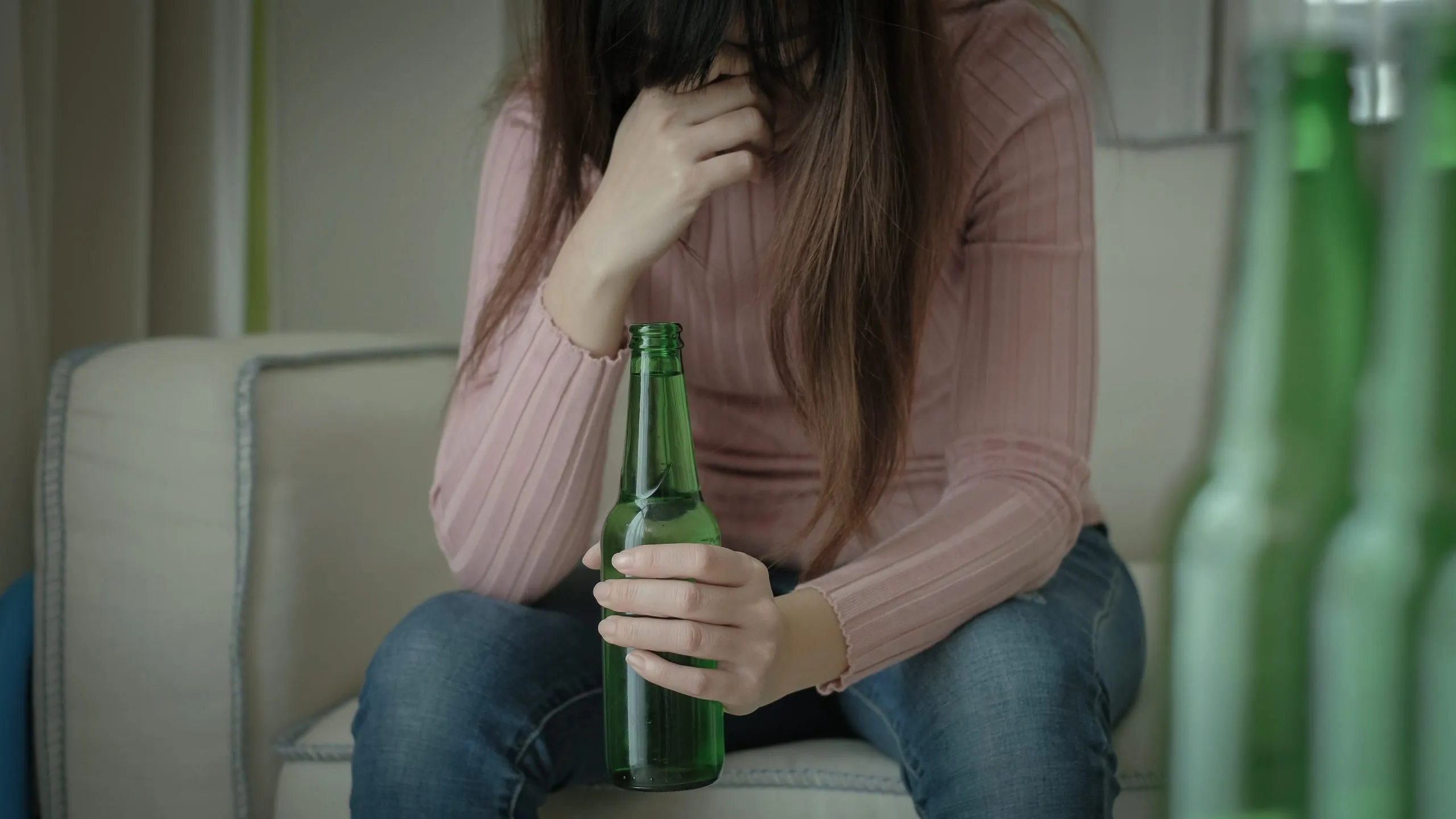Recent statistics on adolescence and alcohol abuse use validate the idea that the later someone is exposed to drugs, the less likely they are to struggle with addiction. Talking to your child about alcohol abuse is crucial for preventing underage drinking and promoting a healthier, better life.
Understanding the risks and warning signs can help you address the issue before it escalates.
Many teens turn to alcohol to cope with stress, peer pressure, or emotional issues. Others just want to drink because it’s what adults do, and maturing is an important part of adolescence. And as harmful as alcohol is, it’s also readily accessible to most teens, whether through a parent’s liquor cabinet or through an unscrupulous – and sometimes abusive – older friend.
It can be heartbreaking to see your child make risky, potentially life-altering choices, but growing up is about choice and responsibility. Parents can help better prepare their teens for adulthood by making sure their choices are as informed as possible.
Starting a conversation about underage drinking can feel daunting. By understanding the dangers of adolescence and alcohol abuse and learning how to approach the topic objectively, you can support your child’s development and arm them with the tools they need to make better choices.
Understanding the Risks of Underage Drinking
Teen drinking is illegal for a few good reasons.
First, alcohol impacts children differently than adults. Adults tend to be larger than teens, and alcohol does more damage the more you drink.
Second, children and teens are less likely to drink in moderation. Initially, alcohol releases feel-good chemicals and encourages recurring drinking episodes, as well as bingeing. But binge drinking also increases the risk of alcohol poisoning, as well as injury and death through alcohol-related accidents.
Lastly, teens are more likely to develop an alcohol addiction the earlier they start drinking. Early onset drinking tends to result in more cases of substance use in general, while having a first drink later in life tends to reduce the likelihood of binge drinking and substance abuse.
Debunking the Myth of Lower Drinking Ages and Safer Teen Drinking
The argument is often made that a lower drinking age might help take away some of the taboo appeal of alcohol, as well as create more legal avenues for teens to experience drunkenness in safe environments, but this isn’t necessarily statistically true. Pubs and clubs are not automatically safer than getting drunk at a friend’s house.
European countries tend to have much lower drinking ages, and they struggle with high levels of adolescent drunkenness, including higher rates of alcohol use among teens than in the US. European countries also struggle with higher rates of liver cirrhosis and alcoholism among adults.
Furthermore, since the introduction of a minimum drinking age of 21 across the United States, teen alcohol use and alcohol-related incidents and deaths have gone down. Protecting teens from alcohol use is a good thing.
Signs Your Child May Be Struggling with Alcohol Abuse
Alcohol is a mind-altering substance, and recognizing drunkenness isn’t difficult. Teens tend to struggle to hide some of the more obvious signs of drinking, including the smell of beer or liquor.
However, teens who successfully hide their drinking make it obvious through other ways, such as frequently oversleeping, frequent hangover complaints, staying out late at night, a drop in grades, and more severe behavioral and mental health symptoms, such as mood swings, memory problems, and frequent blackouts.
How Alcohol Abuse Affects Mental Health in Adolescents
Excessive drinking is sometimes a red flag for existing mental health problems. Teens with anxiety or depression are more likely to struggle with substance use disorders as a negative coping style, and alcohol is one of the most accessible substances for teens to use and abuse.
However, drinking can also cause depression and anxiety, or “unlock” its symptoms. Teens who drink regularly are at a greater risk of developing mental health issues down the line, whether due to the substance use itself or the social, interpersonal, and emotional impact of addiction.
The Importance of Early Intervention and Support
There are a few reasons why alcohol is a popular drug among teens – it’s legal for adults, there are relatively few laws controlling the possession or consumption of alcohol in private, and it isn’t very expensive.
While the US has lower drinking rates than most countries in Europe, America’s drinking culture is still very much pro-booze, and pop culture is saturated with alcohol, marijuana, and other recreational drugs. For many teens, part of growing up includes learning to “hold your drink”, and getting drunk is as much a rite of passage for teens as having sex for the first time.
That being said, there are genuine benefits to waiting for the right time to have one’s first drink. Parents can talk to their teens about the dangers and drawbacks of alcohol without resorting to fearmongering.
Focusing on the facts helps. Teens who drink earlier in life are more likely to struggle later, whether with their mental health or with addiction itself. Teen drinking also puts teens and their friends at greater risk of death and injury. Waiting just a few years tends to reduce the risk of alcohol use and the risk of alcohol use disorders.
Intervention For Teens Who Already Drink
Teens who have already started drinking can still benefit by avoiding social events where alcohol is likely to be offered and by quitting drinking until at least the legal age. Alcohol use disorders develop over time, and it can take teens quite a few drinks before they begin to struggle with alcoholism.
For teens who are showing signs of substance abuse, a heart-to-heart can be the first real step towards considering professional help. Addiction is difficult to overcome, and nearly impossible to overcome alone. Approach the topic without judgment, focusing instead on taking steps together towards recovery.
How to Start the Conversation About Alcohol Abuse with Your Child
Alcohol abuse is a serious subject, and not something you want to spring on your child at the wrong moment in time. Consider these tips:
Choose the Right Time and Place: Select a calm, private setting where both you and your child feel comfortable and unpressured. Don’t corner them or force them into a conversation with no escape.
Be Open and Non-Judgmental: Approach the conversation with empathy and avoid criticizing or shaming your child to foster trust.
Ask Open-Ended Questions: Encourage your child to share their thoughts and feelings by asking questions like, “How do you feel about alcohol?” instead of yes/no questions.
Acknowledge Peer Pressure: Discuss the realities of peer pressure and how difficult it can be to say no, while offering strategies to handle those situations, such as having a sober pact with a friend or calling you for a ride home if a situation seems uncomfortable.
Use Real-Life Examples: If appropriate, use examples from your family to illustrate the impact of alcohol abuse.
Stay Calm and Patient: If the conversation becomes difficult or emotional, remain calm and patient to ensure your child feels safe and supported.
Starting a conversation about alcohol abuse with your child can be challenging, but it’s crucial for their long-term well-being. Encourage open dialogue, offer support, and emphasize the importance of waiting until adulthood to drink responsibly. These steps can help create a strong foundation for trust and guidance.
If your teen is struggling with alcohol abuse, then your next step should be seeking professional help together. At Visions, we are here to help you and your teen navigate adolescence and alcohol abuse. We offer a range of programs designed to help teens with mental health and substance abuse issues.









